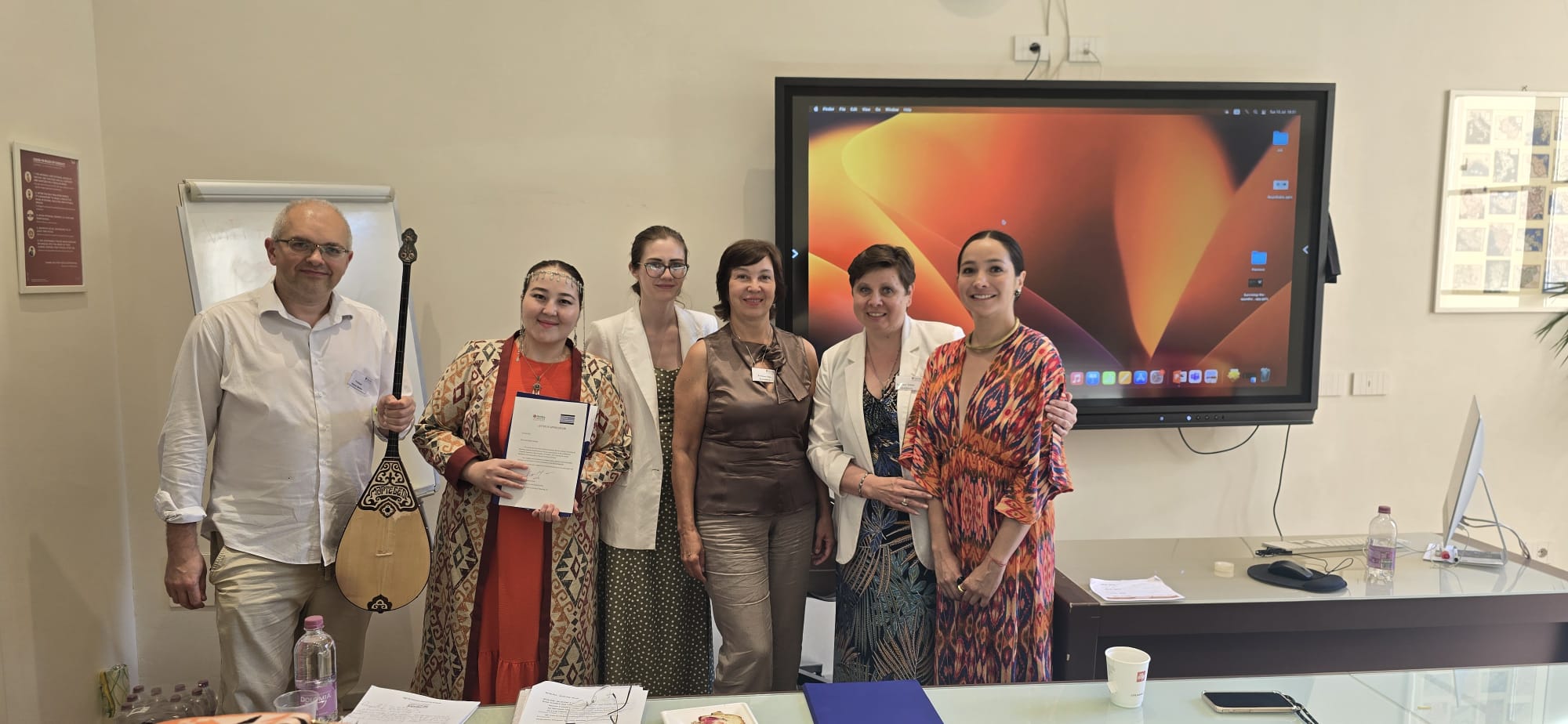Lilly Vergnes' solo exhibition will remain on display at the Palazzi Community Center until February 11, 2026

The American University of Florence Hosts UNECE Policy Dialogue
Creative Industries: New Frontiers of Growth
On 15 July 2025, The American University of Florence joined forces with the Centre for Euro-Asian Studies at Henley Business School and the United Nations Economic Commission for Europe to convene Creative Industries: New Frontiers of Growth here in Florence, Italy. Over the course of the afternoon, scholars, policymakers and practitioners from across the UNECE region gathered to explore how the creative economy can become a driver of inclusive, resilient and sustainable development.
Speakers shared examples of how cultural organizations rebounded from the disruptions of the pandemic and recent economic challenges. They highlighted new business models that blended in-person and virtual offerings, partnerships that crossed sectoral lines, and policy measures aimed at strengthening creative ecosystems.
Yelena Kalyuzhnova, Director of the Centre for Euro-Asian Studies and Vice-Dean (International) at Henley Business School, leads a British Academy–funded project on creative-industry resilience. She observed, “Resilience isn’t simply about surviving. It’s about evolving systems that nurture sustainability, digital equity, and inclusivity.” Her remarks underscored the need for long-term investment in infrastructure, training, and networks—especially to support independent creators and small to medium-sized enterprises.
Digital tools emerged as a recurring theme during each panel discussion. Participants examined how online platforms, artificial intelligence, immersive media and blockchain are reshaping everything from content creation to rights management. While these innovations promise greater reach and efficiency, experts cautioned that equitable access depends on thoughtful regulation. The consensus was clear: technological advancements must be paired with forward-looking policy frameworks if all creators are to share in the benefits.
Midway through the dialogue, two artists from Kazakhstan took the stage—their performances sponsored by the British Council through its Creative SPARK programme—to bring cultural heritage and contemporary practice into vivid relief. Their work reminded attendees that at its heart, the creative economy is about people. Kalyuzhnova added, “True resilience, after all, is not built by the loudest voices in the center, but by uplifting those at the edges, including micro-businesses, grassroots innovators, and marginalized voices.”
As the event drew to a close, participants endorsed a set of actionable recommendations for UNECE, including integrating creative sectors into national development strategies, strengthening digital and innovation ecosystems, enhancing data collection on sectoral impacts, and promoting cross-border cultural exchange. Kalyuzhnova concluded, “Creative industries aren’t just nice-to-have, they are essential. They are where futures are imagined, crises are reinterpreted, and renewal begins.”
The American University of Florence is proud of the opportunity to host this roundtable for the Centre for Euro-Asian Studies at Henley Business School, and the institution hopes that the event generates further policy dialogue related to the creative industries in Italy and the United Kingdom.
For more on the dialogue’s outcomes, see UNECE’s full write-up here & the Centre for Euro-Asian Studies at Henley Business School's here.
Latest news
Blending Magazine Presents: The Renaissance of Material Media
The American University of Florence presents Blending Magazine's latest edition: The Renaissance of Material Media
AUF's 14th Annual Conference
On December 5 2025, academics from around the globe came to discuss this year’s theme: The Renaissance of Material Media
